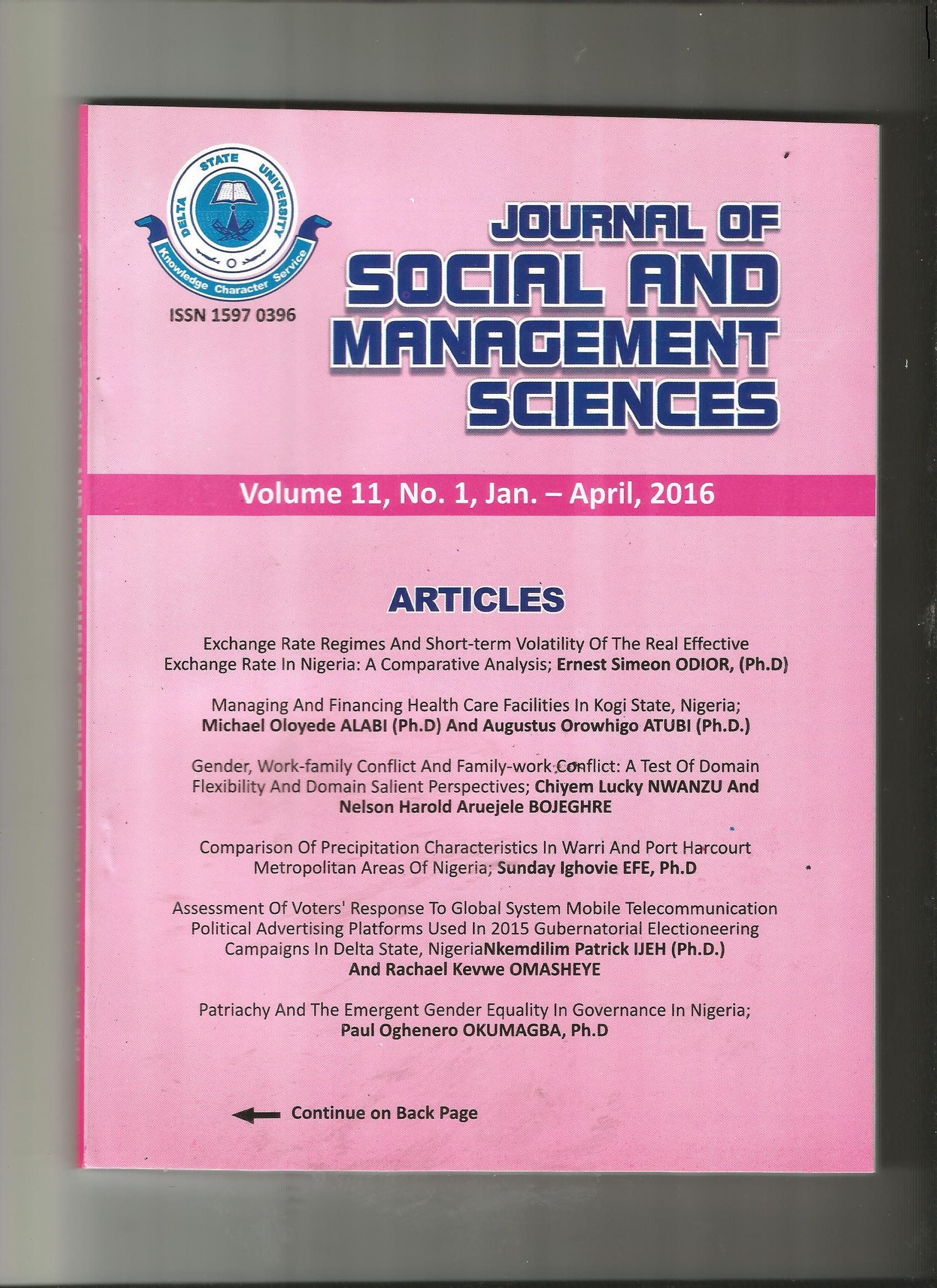
JOURNAL OF SOCIAL AND MANAGEMENT SCIENCES
Journal of the Faculty of Social Sciences, Delta State University, Abraka, Nigeria
ISSN: 1597-0396
DOI: 10.5987/UJ-JSMS
Email: jsms@universityjournals.org
REPOSITIONING YOUTH FOR POST-DEMOCRATIC NATIONAL DEVELOPMENT OF NIGERIA: A CRITICAL INVESTIGATION OF THE NATIONAL YOUTH SERVICE CORPS' DEPLOYMENT POLICY
DOI: 10.5987/UJ-JSMS.16.029.1 | Article Number: D46D8A10 | Vol.11 (1) - April 2016
Author: ARUBAYI Dereck Osadere
Keywords: Nigeria National Integration, Youth Deployment Policy
In Nigeria, the National Youth Service Corps is a central youth service agency that is concerned with fulfilling the 3R post-civil war (1967-1970) policy of reconciliation, rehabilitation and reconstruction. The NYSC scheme has not only be pivotal to implementation of national development policies in historical times, but its contemporary mandate enables it to be a critical agency for the fulfilment of Millennium Development Goals (MDGs) and Sustainable Development Goals (SDGs) policy mandates while striving to manage the ever growing corps population. This paper draws on findings from recent research that involved 132 respondents made up of 123 young Nigerian graduates and 9 NYSC officials, whose perspectives provide a critique to the NYSC's 4-sector deployment policy that focuses on the deployment of young graduate talent in Nigeria to only four narrow sectors for national development needs. In reality, this paper captures how, the 4-sector deployment policy of the NYSC has created 'capability traps and gaps' in the way that youth capabilities are managed, deployed and sustained for national development. The paper presents an analytic framework that unveils the reality of plausible youth neglect and skills mismatch for youths, whose capabilities don't fit the 4-sector deployment narrative thereby critiquing national development plans and policy making practices in post-democratic Nigeria (1999 till date) that have failed to take into cognisance the capabilities and collective agency of the Nigerian youth. The paper concludes by recommending a REPLIR Strategy especially if the NYSC is to become a strategic agency that can better harness, deploy and manage the potentials, skills and energy of these young people for national development in Nigeria
